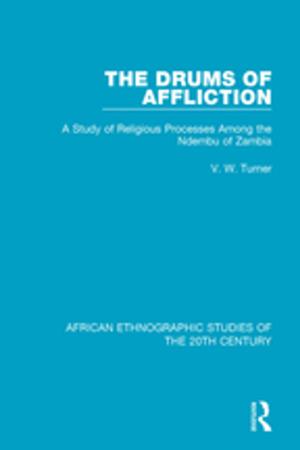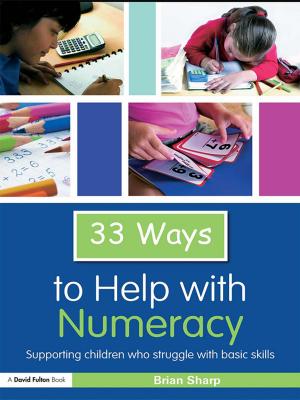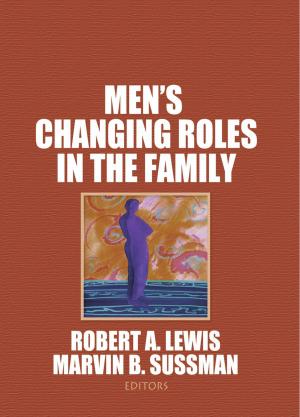Handbook of Family Theories
A Content-Based Approach
Nonfiction, Health & Well Being, Psychology, Developmental Psychology, Social & Cultural Studies, Social Science, Sociology| Author: | ISBN: | 9781135118747 | |
| Publisher: | Taylor and Francis | Publication: | March 5, 2013 |
| Imprint: | Routledge | Language: | English |
| Author: | |
| ISBN: | 9781135118747 |
| Publisher: | Taylor and Francis |
| Publication: | March 5, 2013 |
| Imprint: | Routledge |
| Language: | English |
Organized by content areas rather than by theory, this comprehensive, accessible handbook helps readers gain greater insight into how key theories have impacted today’s family research. Most competing books, organized by theory, do not provide a strong sense of the links between theory and research. Using the 2000 and 2010 decade-in-review issues of the Journal of Marriage and Family as a resource, the book addresses the most important topics impacting family studies research today.
The introductory chapter, written by the editors, provides an overview of the role family theories have had on the field. This chapter is followed by 23 others on family-related content areas written by renowned scholars in the field. The book is organized around the most important domains in the field: parenting and parent-child relationships, romantic relationships, conflict and aggression, structural variation and transitions, demographic variations, and families and extra-familial institutions. Each of the contributors describes how theory has been used to generate new knowledge in the field and suggests future directions for how theory may be used to extend our knowledge base. The book helps readers acquire a working knowledge of the key family science theories, findings, and issues and understand how researchers make use of these theories in their empirical efforts.
To maximize accessibility, each of the renowned contributors addresses a common set of issues in their chapter:
• Introduction to the content area
• Review of the key topics, issues, and findings
• A description of each of the major theories used to study that particular content area
• Limitations of the theories
• Suggestions for better use of the theories and/or new theoretical advances
• Conclusions about future theoretical developments.
An ideal text for graduate and/or advanced undergraduate family theories courses, this book’s unique organization also lends itself to use in content-based family studies/science courses taught in family studies, human development, psychology, sociology, communication, education, and nursing. Due to its comprehensive and current approach, the book also appeals to scholars and researchers in these areas.
Organized by content areas rather than by theory, this comprehensive, accessible handbook helps readers gain greater insight into how key theories have impacted today’s family research. Most competing books, organized by theory, do not provide a strong sense of the links between theory and research. Using the 2000 and 2010 decade-in-review issues of the Journal of Marriage and Family as a resource, the book addresses the most important topics impacting family studies research today.
The introductory chapter, written by the editors, provides an overview of the role family theories have had on the field. This chapter is followed by 23 others on family-related content areas written by renowned scholars in the field. The book is organized around the most important domains in the field: parenting and parent-child relationships, romantic relationships, conflict and aggression, structural variation and transitions, demographic variations, and families and extra-familial institutions. Each of the contributors describes how theory has been used to generate new knowledge in the field and suggests future directions for how theory may be used to extend our knowledge base. The book helps readers acquire a working knowledge of the key family science theories, findings, and issues and understand how researchers make use of these theories in their empirical efforts.
To maximize accessibility, each of the renowned contributors addresses a common set of issues in their chapter:
• Introduction to the content area
• Review of the key topics, issues, and findings
• A description of each of the major theories used to study that particular content area
• Limitations of the theories
• Suggestions for better use of the theories and/or new theoretical advances
• Conclusions about future theoretical developments.
An ideal text for graduate and/or advanced undergraduate family theories courses, this book’s unique organization also lends itself to use in content-based family studies/science courses taught in family studies, human development, psychology, sociology, communication, education, and nursing. Due to its comprehensive and current approach, the book also appeals to scholars and researchers in these areas.















